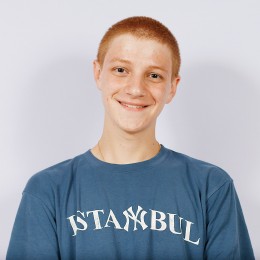
The civil war in the Central African Republic (CAR) started in late 2012 when an alliance of rebel groups from the northeastern part of the country toppled the government of President Francois Bozize. The rebels, known as the Seleka (a Sangho word for “alliance”) occupied the nation’s capital Bangui, installed their own government and unleashed a ten-month wave of violence and looting. It was in this environment that peacekeeping troops from France and the African Union (AU) first arrived to calm the situation. Although the Seleka wasn’t a religious movement, the fact that it was composed of mostly Muslims and that a majority of the country is Christian led to some of the worst sectarian violence the country had ever seen, with Christian and animist groups (known as anti-balakas) carrying out reprisals and both sides engaging in massacres and ethnic cleansing. The violence led to the displacement of nearly one million people, including almost the entire Muslim population in the country’s west, and led the United Nations to deploy its own 12,000 man peacekeeping force, MINUSCA.
Now, three years after the start of the conflict, the worst violence has for the most part subsided and some degree of relative calm has come to the capital but the conflict is far from over. Within Bangui alone firearms and crime have become widespread, the anti-balaka refuse to disarm, and the few Muslims still hiding in enclaves in the west are still too afraid to return to their homes. Yet the French government is scaling down its 2,000 man mission in the country. Officials such as U.S. ambassador to the United Nations, Samantha Powers, have voiced their concerns over the timing of this downsizing, and they have every reason to be concerned.
The international peacekeeping efforts in the CAR have been notoriously undermanned; they have enough trouble preventing violence from occurring in major cities such as Bangui or Bambari, let alone the countryside which has devolved into an almost-anarchic state. At the end of last March the temporary mandate for the 750 man European Union Force (EUFOR RCA) expired and almost as soon as the European troops left, violence and crime engulfed several neighborhoods in Bangui. The UN has recently approved a resolution to send an additional 1,000 troops, but simply replacing some of the French peacekeepers will not fix their inability to bring order to most of the country.
The situation outside the capital has gotten so bad that anti-UN protests in Kaga-Bandoro led to one death and over a dozen injuries. The protesters were angry at the UN’s failure to stop raids on local villages. If the French leave now, the violence will only continue to escalate at a critical time when the peace process is just starting to take effect. Grassroots grievance airing councils are being held all over the country and in refugee camps over the borders; even former Seleka rebels are beginning to participate in the process. However the peacekeeping missions need to restore some degree of order to the country as a whole in order for the peace process to have any practical effects, and if too many peacekeepers leave before this happens, then the country will only continue to descend into chaos.


